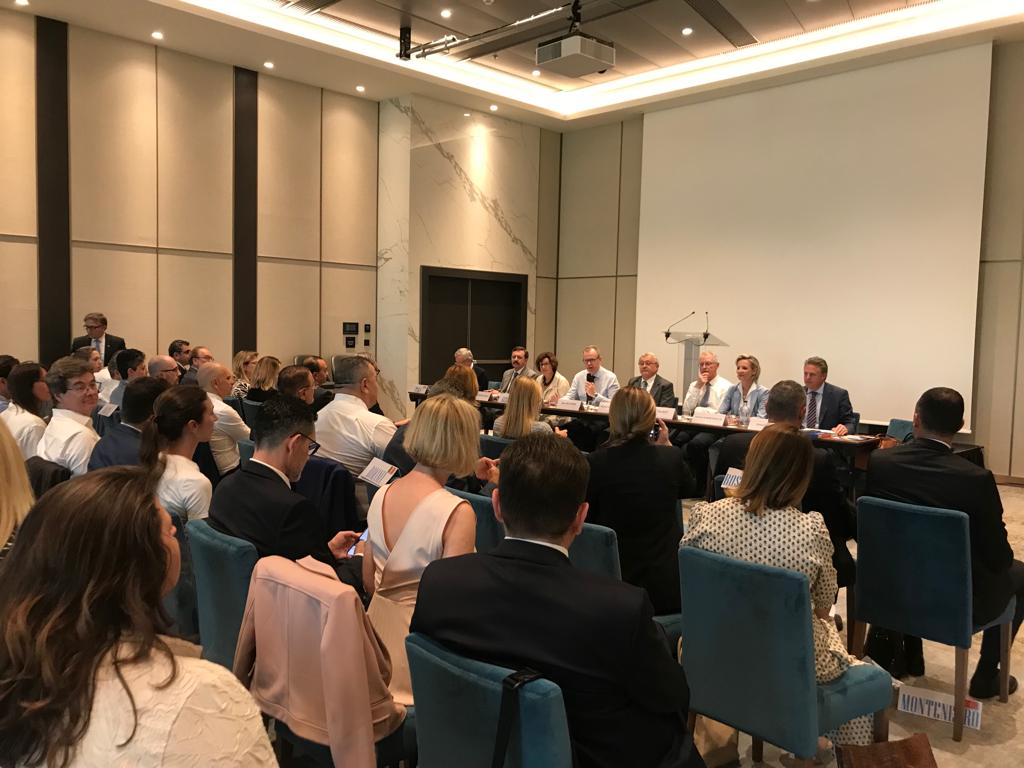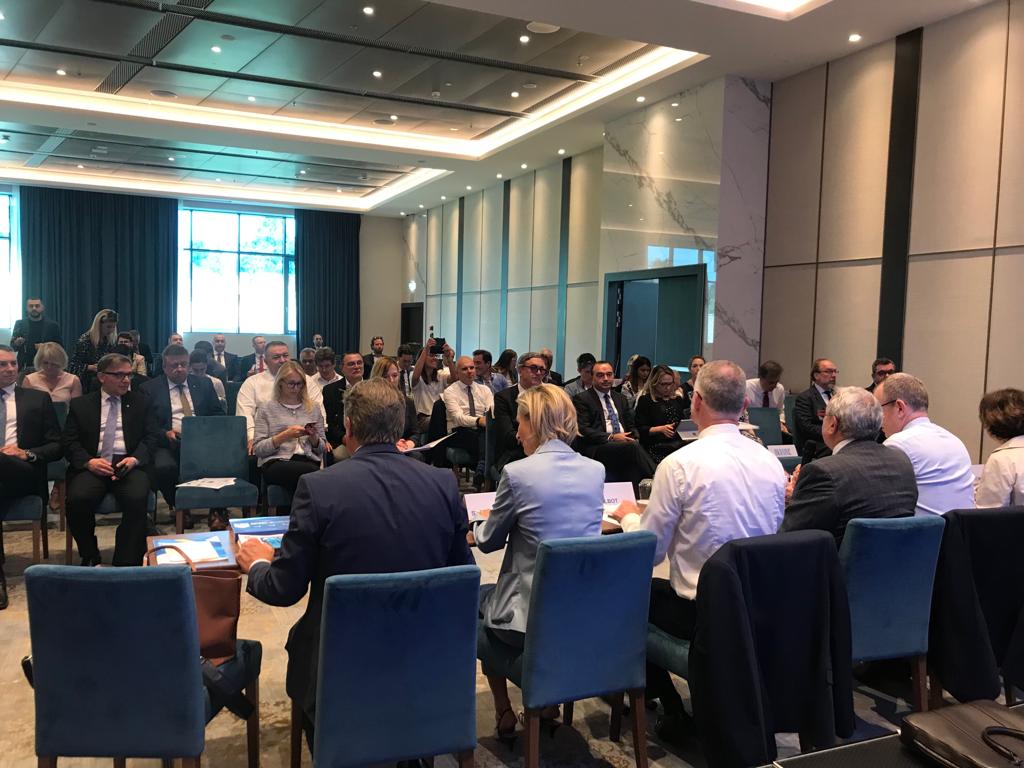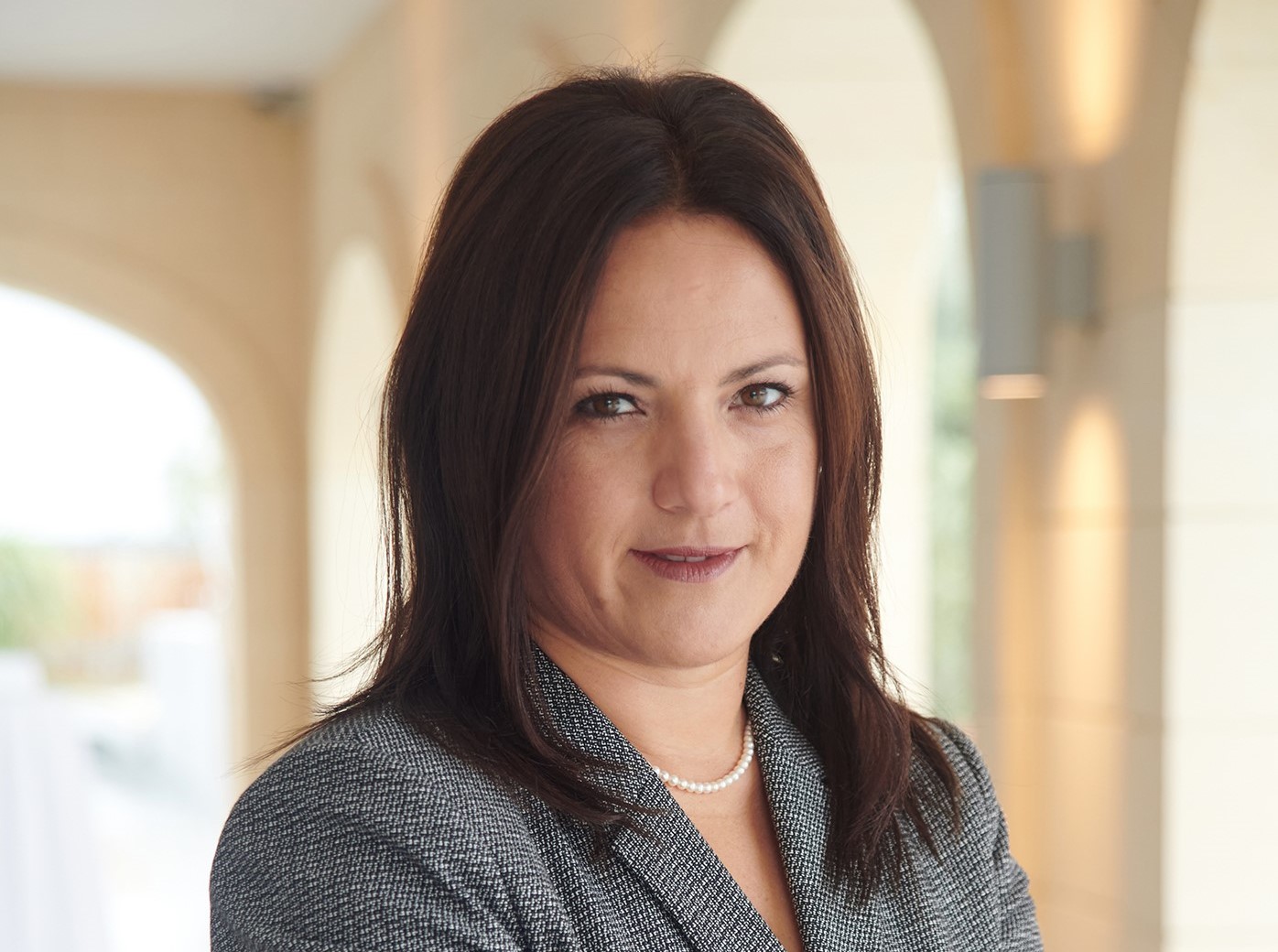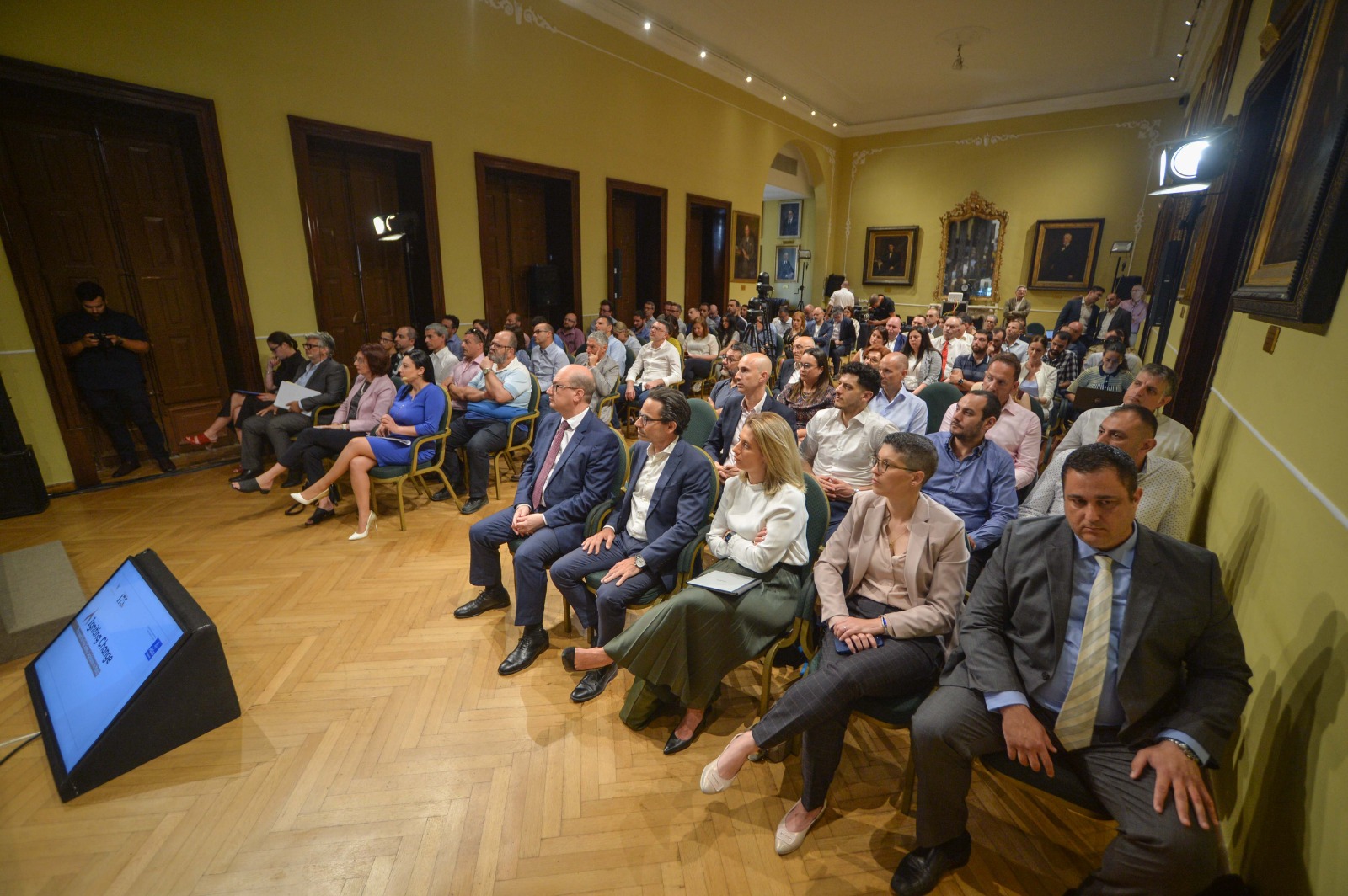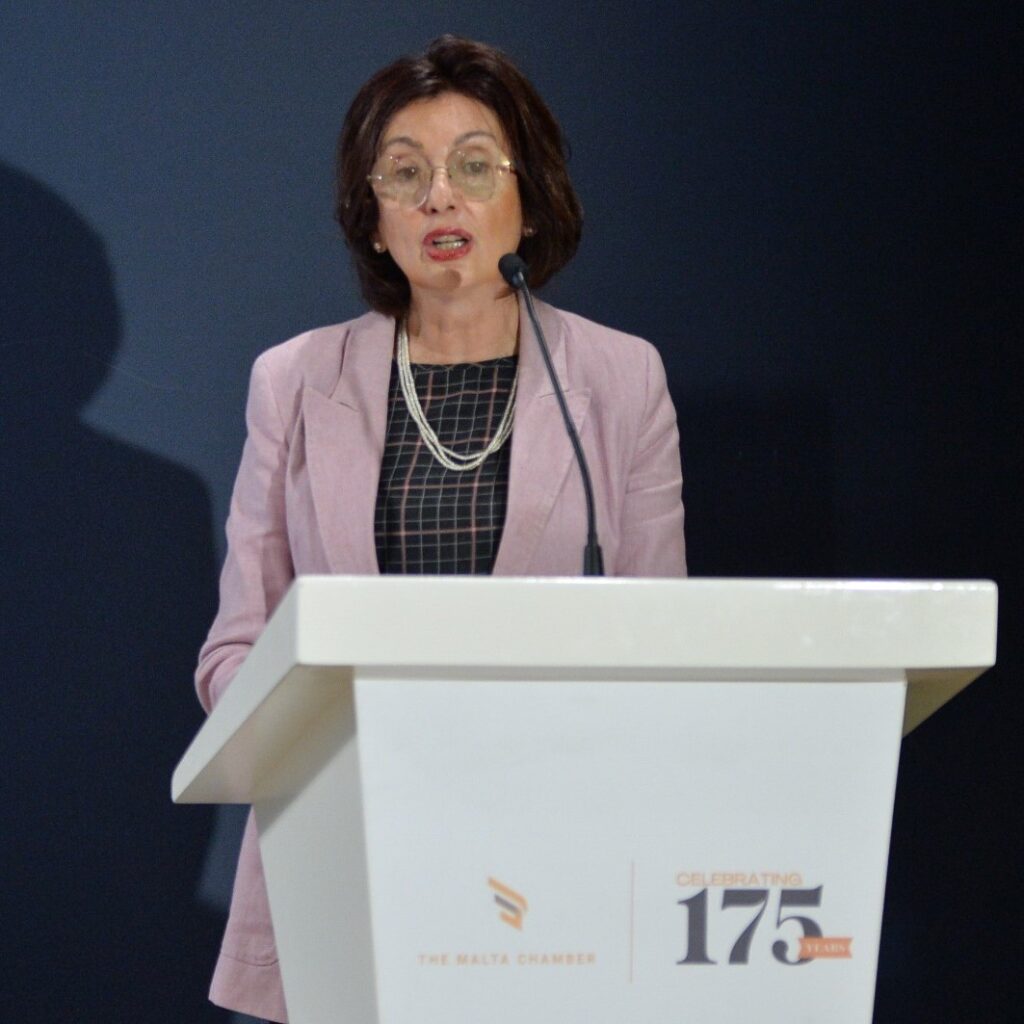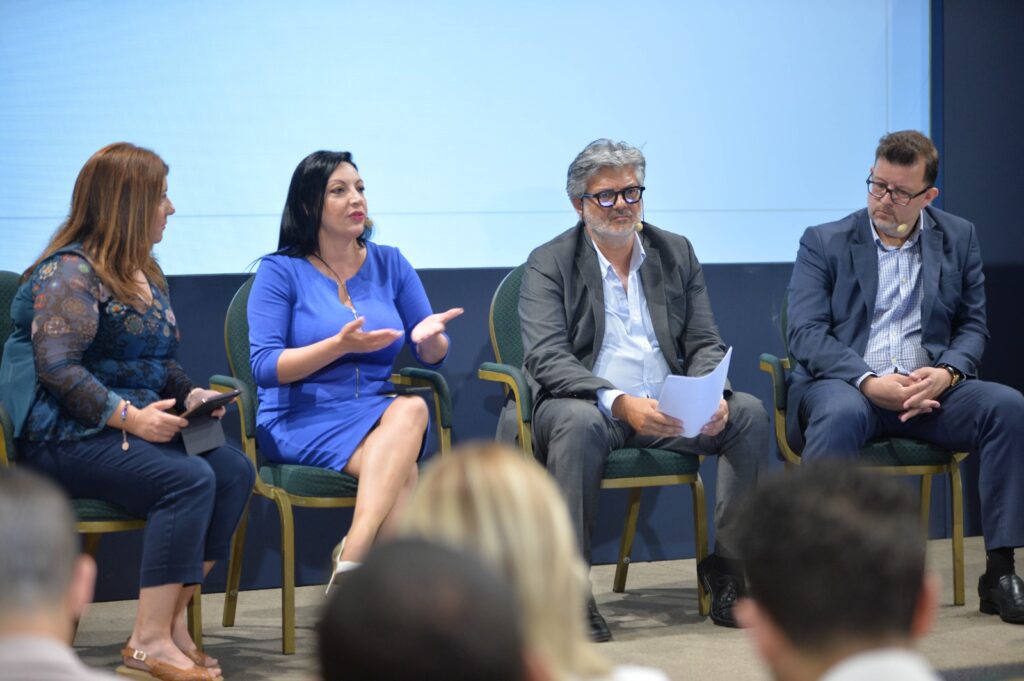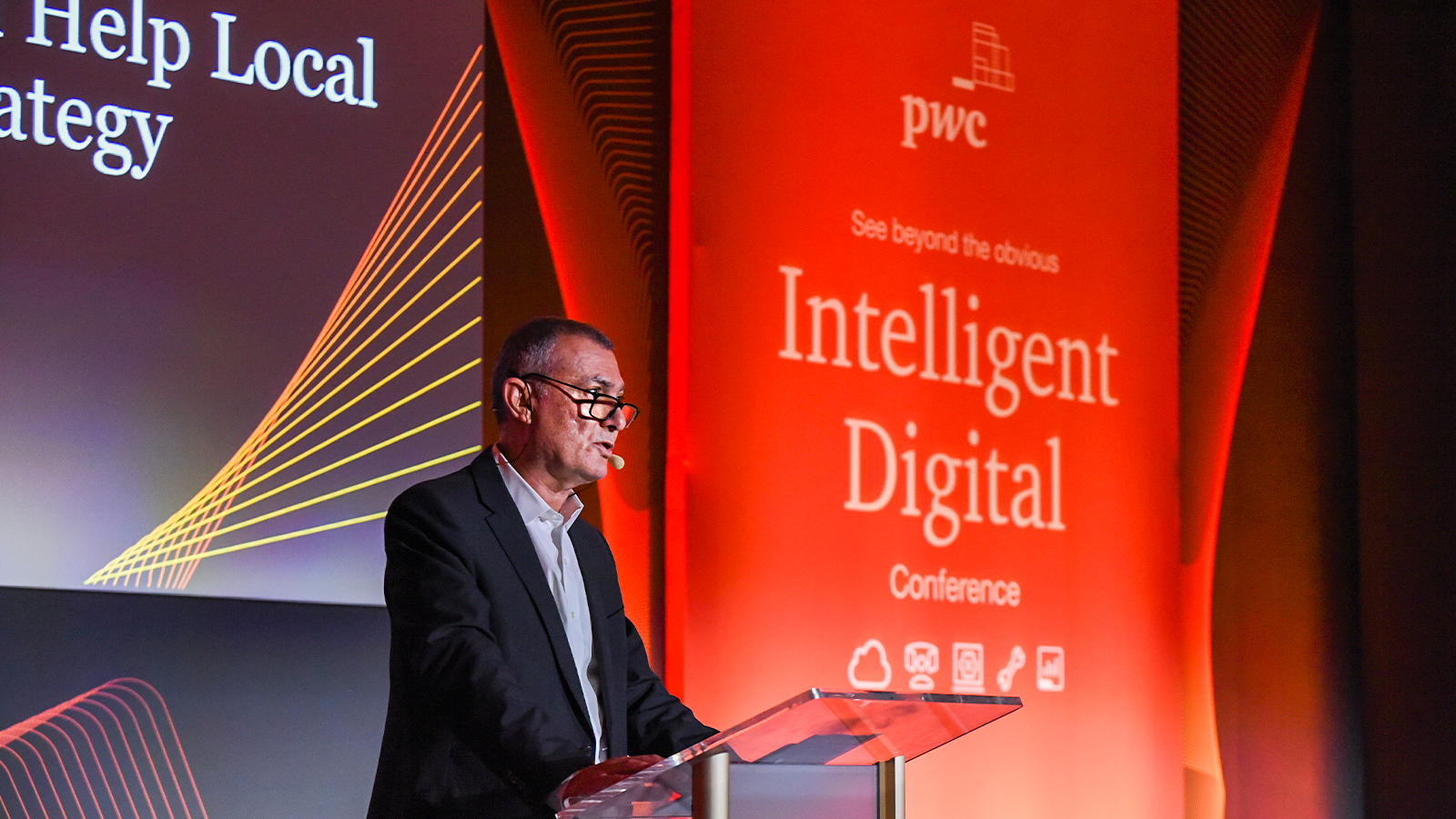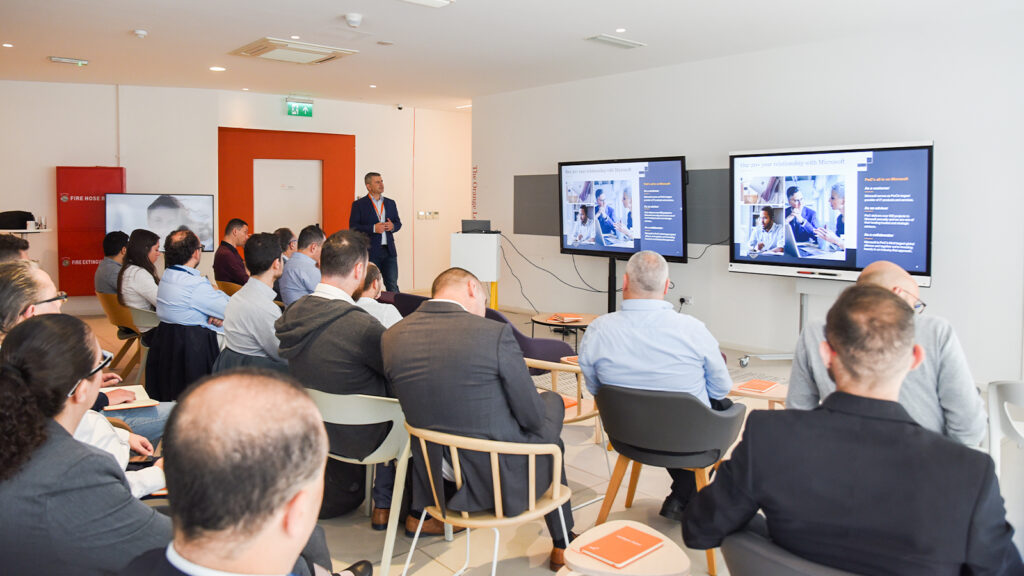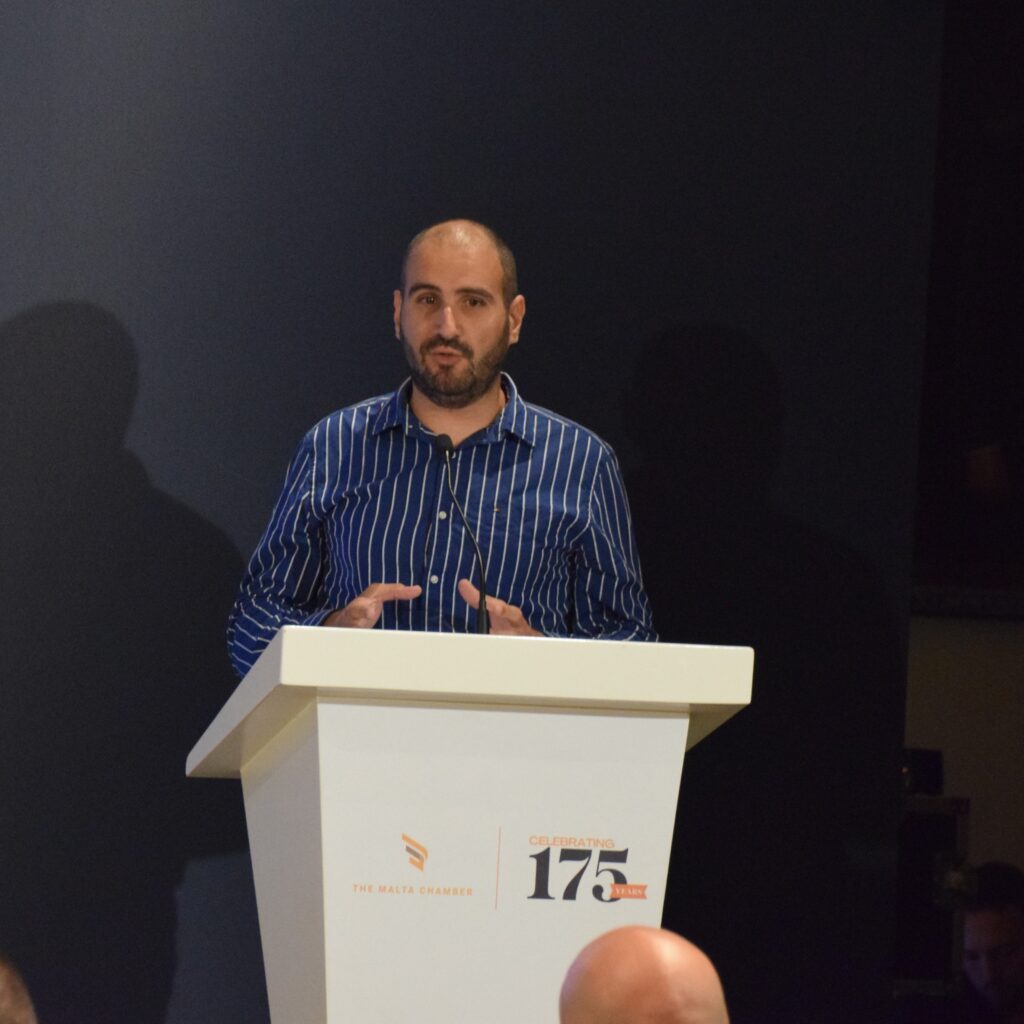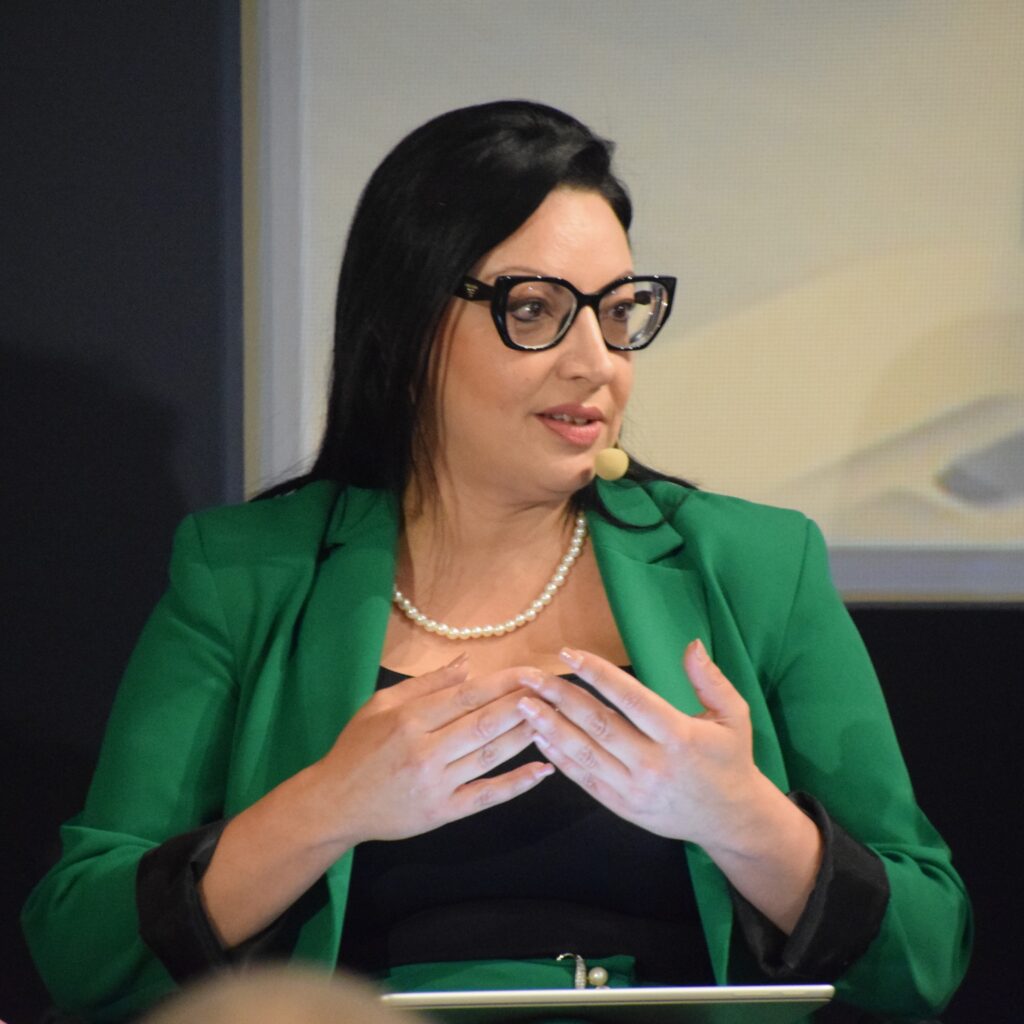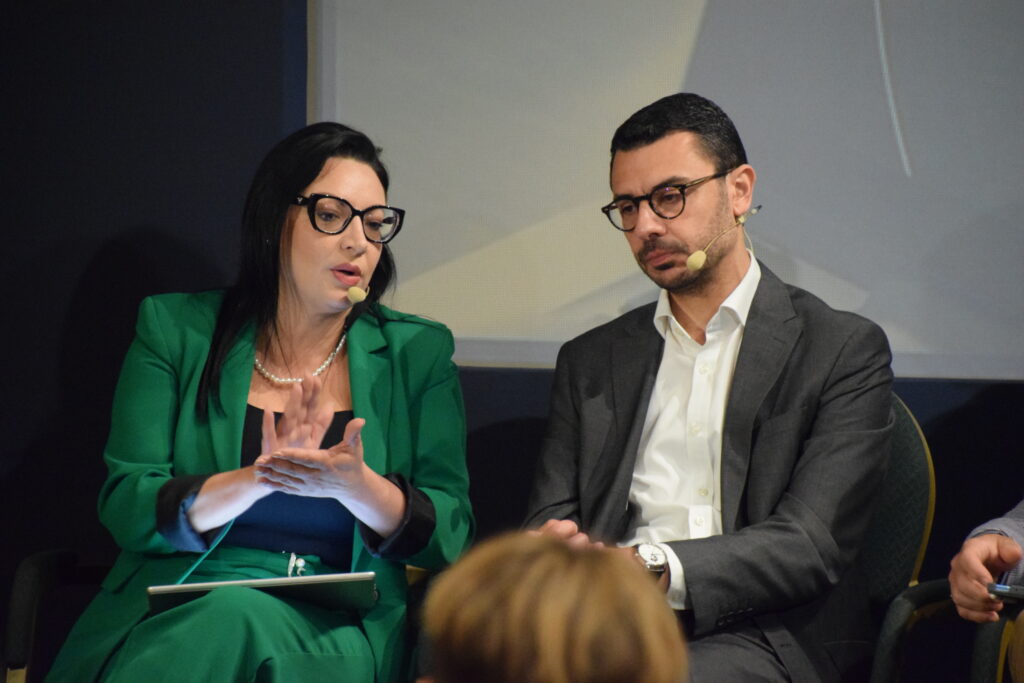The Malta Business Bureau, the Energy & Water Agency (EWA), and The Malta Chamber, hosted an event titled Sustainability in Industry: Different Perspectives. The scope was to provide a holistic and comprehensive overview of the path businesses need to take to become sustainable, ranging from core concepts such as double materiality, to the behavioural dynamics obstructing green growth. This webinar was the 11th of the WE MAKE event series, a collaboration between the aforementioned partners, funded by EWA. Through the project, the call to action for SMEs to become more sustainable is to begin with an energy audit, which can be funded up to 5000 euros. Those interested are to get in touch with the Malta Business Bureau.
Vice President of The Malta Chamber, Mr Mark Bajada, opened the event by stating:
“This consortium serves as a valuable resource, offering guidance, connections and resources to businesses seeking to embark on a sustainable path, and obtaining financial support. By fostering meaningful connections between industry, academia, business and policymakers, we can dismantle barriers, unlock opportunities and ensure industry’s sustainable growth.”
Dr Alex Mifsud, an academic versed in carbon literacy and sustainable development, presented an overview of the key concepts behind going green, while sustainability consultant Corinne Fenech explained how change is difficult both because of psychological obstacles to sacrificing in the short term for long term gains, and also because sustainability presents a social dilemma. Social dilemmas arise when individual self-interest conflicts with the collective interest, posing a challenging decision-making situation. These dilemmas occur in various contexts, such as the overuse of shared resources or the provision of public goods. In such scenarios, individuals face a choice between pursuing their own immediate benefits or contributing to the greater good. However, if everyone acts solely in their self-interest, it can lead to suboptimal outcomes, where the collective suffers. In a business context, these suboptimal outcomes may be understood via the concept of double materiality.
Dr Jonathan Spiteri from the Department of Insurance & Risk Management at the University of Malta explained that double materiality recognizes that the impacts of environmental factors, such as pollution, resource depletion, or climate change, can have material effects on both the financial performance of a company and the broader societal and environmental well-being. It is a concept that recognizes the interconnection between environmental, social, and governance (ESG) factors and their impact on both the financial performance of a company and the broader society and environment.
Double materiality emphasises the importance of assessing and managing risks and opportunities related to ESG factors that can have material impacts on both the financial bottom line and the well-being of stakeholders and the planet. By adopting a double materiality approach, companies can strive for long-term sustainable success by integrating ESG considerations into their strategies, operations, and reporting, and addressing the interconnectedness of financial and non-financial factors. By recognizing the double materiality of environmental factors, businesses are encouraged to consider the potential financial risks and opportunities associated with environmental damage, as well as the broader societal and environmental impacts.
The event concluded with an overview of the next steps which businesses can take to become energy efficient by participating in client journeys through the Enterprise Europe Network (EEN). MBB Senior Executive (Business Advisory & Support) Michele Agius explained how client journeys enable a green transition for SMEs. Those businesses interested in taking advantage of these opportunities may reach out to MBB Senior Projects Executive (Sustainability) Timothy Alden at talden@mbb.org.mt
The Water and Energy Management and Knowledge Transfer in Manufacturing Enterprises (We Make) project, is a collaboration between the Energy and Water Agency (EWA), Malta Business Bureau and the Malta Chamber of Commerce, Enterprise and Industry, sponsored by the EWA, to give manufacturing industry businesses guidance on how to consume energy and water efficiently.

